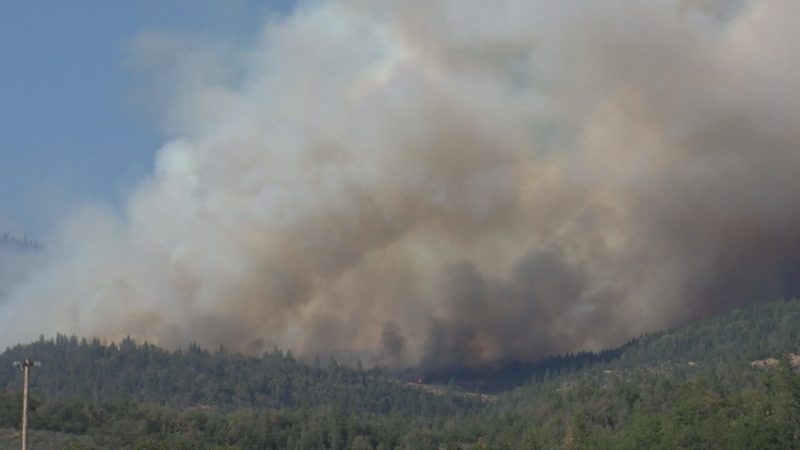Medford, OR – Recent findings from a study led by Dan Jaffe, Haebum Lee, Daniel Goldberg, and Katelyn O’Dell have revealed troubling news for residents of Oregon. The study, which focused on the period from 2019 to 2023, found that the three smokiest cities in the United States were all located in Oregon—Medford, Bend, and Grants Pass. Among them, Medford was ranked as the most smoke-affected city in the country.
The research, which utilized an advanced algorithm, aimed to measure the impact of wildfire smoke with a speed and precision not previously seen. By analyzing satellite imagery and particulate matter data, the study highlighted the harmful effects of smoke in the air, particularly those with particles smaller than 2.5 micrometers in diameter, which are the most harmful to human health. The study also incorporated health data from hospitals to evaluate the correlation between smoky days and emergency room visits.
For many residents in the affected areas, the results are all too real. One of these residents, Jennifer Hobbs of Medford, knows firsthand the dangerous impact of wildfire smoke. Hobbs suffers from Mast Cell Activation Syndrome (MCAS), a condition that causes abnormal immune responses to certain triggers, including smoke. “It got super windy and it was really smoky outside, and I ended up going into anaphylactic shock,” Hobbs explained. “I needed an EpiPen and had to go to the hospital.”
Hobbs’ experience is not unique. For those like her, the smoky season in Oregon becomes an ongoing struggle. Hobbs, who has learned to live with MCAS, relies heavily on carrying EpiPens, taking Benadryl, wearing masks, and using air purifiers in an attempt to avoid harmful exposure. But even these precautions don’t completely mitigate the risks. “It’s the summer. That’s when you want to go to the river, to the lake. But those are limited because I can’t put myself into the environment,” Hobbs lamented.
The Tokar family, longtime Medford residents, also faces severe challenges every smoky season. Renee Tokar, who suffers from asthma, and her husband, David Tokar, who has a lung condition that limits his capacity to breathe, are both at heightened risk. During the worst of the smoky months, David Tokar sometimes needs to rely on oxygen tanks. He’s even been hospitalized for lung failure due to the smoke. “It’s hell on earth here,” he said, describing the ordeal.
The Tokars also run a foster home for elderly adults, many of whom have serious medical conditions. For them, the risks posed by smoke are even greater. “When you have to take them to a doctor’s appointment, you’re concerned because are they gonna get exposed to something from the smoke or from in the community that’s gonna affect their health?” David Tokar questioned.
In addition to the health risks, the couple faces the ongoing challenge of managing air quality in their home. The Tokars frequently replace filters and air purifiers in an attempt to keep the smoke out. But for vulnerable residents, particularly the elderly, exposure to wildfire smoke can be deadly.
While these individual stories offer a window into the personal toll of wildfire seasons, they also speak to a larger issue: the increasing prevalence of wildfires in the western U.S. and their impact on public health. The study’s findings serve as a stark reminder of the urgent need for better air quality management and healthcare responses during fire season.
For many Oregon residents, the smoky season is no longer just an inconvenience—it’s a serious health threat. As wildfires continue to ravage the region, communities like Medford, Bend, and Grants Pass are grappling with the consequences of an environment that no longer feels safe to breathe.

